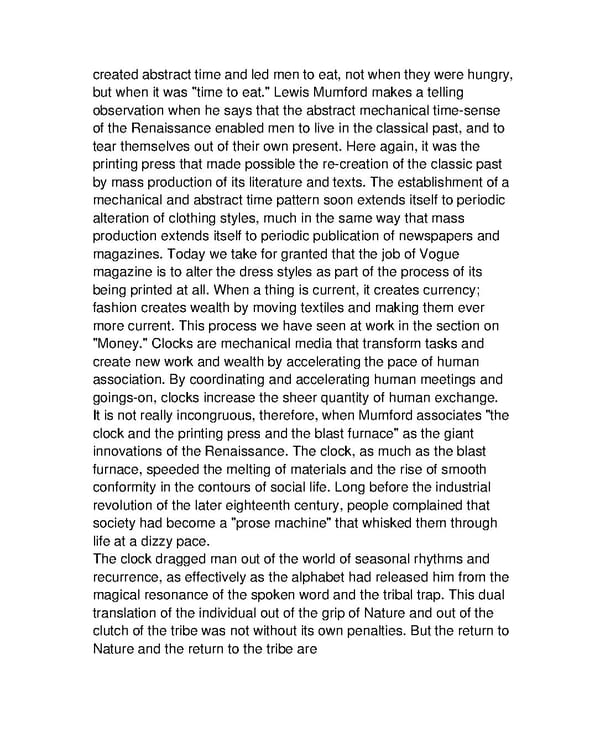created abstract time and led men to eat, not when they were hungry, but when it was "time to eat." Lewis Mumford makes a telling observation when he says that the abstract mechanical time-sense of the Renaissance enabled men to live in the classical past, and to tear themselves out of their own present. Here again, it was the printing press that made possible the re-creation of the classic past by mass production of its literature and texts. The establishment of a mechanical and abstract time pattern soon extends itself to periodic alteration of clothing styles, much in the same way that mass production extends itself to periodic publication of newspapers and magazines. Today we take for granted that the job of Vogue magazine is to alter the dress styles as part of the process of its being printed at all. When a thing is current, it creates currency; fashion creates wealth by moving textiles and making them ever more current. This process we have seen at work in the section on "Money." Clocks are mechanical media that transform tasks and create new work and wealth by accelerating the pace of human association. By coordinating and accelerating human meetings and goings-on, clocks increase the sheer quantity of human exchange. It is not really incongruous, therefore, when Mumford associates "the clock and the printing press and the blast furnace" as the giant innovations of the Renaissance. The clock, as much as the blast furnace, speeded the melting of materials and the rise of smooth conformity in the contours of social life. Long before the industrial revolution of the later eighteenth century, people complained that society had become a "prose machine" that whisked them through life at a dizzy pace. The clock dragged man out of the world of seasonal rhythms and recurrence, as effectively as the alphabet had released him from the magical resonance of the spoken word and the tribal trap. This dual translation of the individual out of the grip of Nature and out of the clutch of the tribe was not without its own penalties. But the return to Nature and the return to the tribe are
 Understanding Media by Marshall McLuhan Page 172 Page 174
Understanding Media by Marshall McLuhan Page 172 Page 174